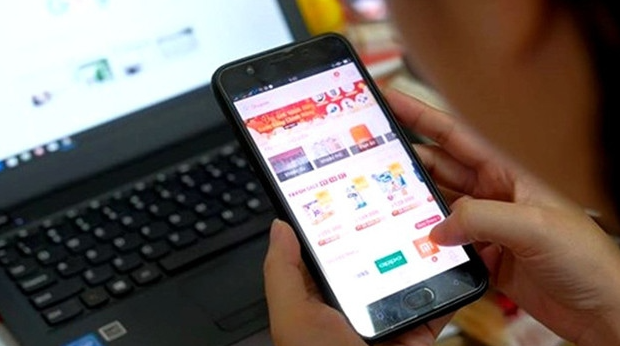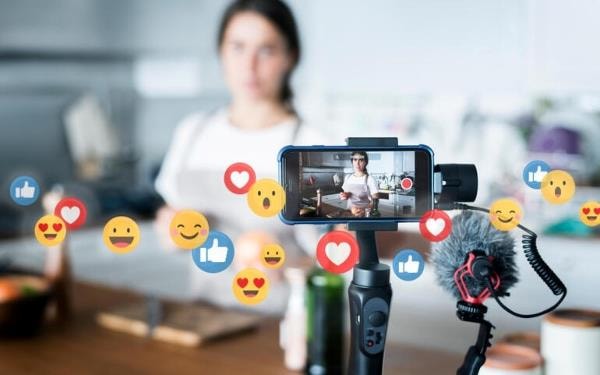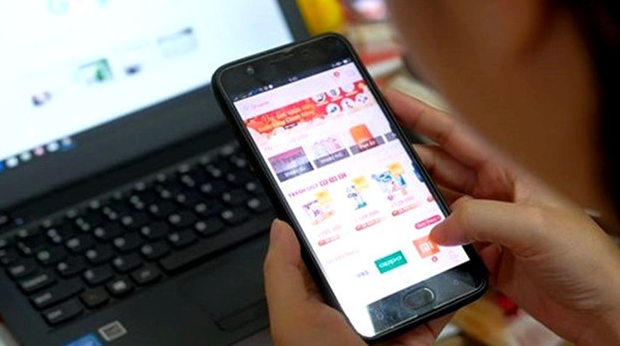Red Alert for the Healthcare Industry
In an interview, Ms. Cao Thanh Mai, a consumer in Dong Da, Hanoi, shared that consumers could easily purchase various types of drugs, such as stomach medicine, allergy medication, dietary supplements, skin whitening serums, and weight loss pills on e-commerce platforms without knowing that these products had never been tested or were advertised with exaggerated claims. This has led to significant risks and adverse effects on consumers’ health.
It’s not just consumers who are affected; legitimate businesses also suffer significant losses. Ms. Tran Bich Phuong, Director of Phuong Nam Pharmaceutical Company, shared her experience: “We were severely impacted when a product in the same category as ours was advertised with misleading claims and sold rampant ly at half the price. Customers couldn’t differentiate, and when they used it and experienced negative consequences, they lost trust in all similar products.”

Counterfeit, substandard, and untraceable products on online platforms are a concerning reality.
“It is evident that misleading advertising and taking advantage of consumer trust have become rampant issues, demanding tighter control and more stringent penalties without any ‘off-limits’ for violations. Especially for goods directly impacting health, stricter supervision is imperative,” emphasized Ms. Mai.
According to Mr. Do Huu Hung, Vice President of the Vietnam E-Commerce Association, the presence of counterfeit, substandard, and untraceable goods on online platforms is a worrying reality. Therefore, there is a crucial need to control and eradicate counterfeit goods, especially for products directly affecting consumers’ health, such as food, cosmetics, and medicines.
A New Front Opens Up on E-Commerce Platforms for Purification
In response to this situation, Vietnam’s e-commerce market is witnessing a significant “purification” campaign in 2025, particularly in three sensitive areas: cosmetics, dietary supplements, and medicines. This is no longer a fertile ground for rampant business practices.
In early May, the Food Safety Authority (Ministry of Health) discovered that some e-commerce platforms, websites, and social media networks were selling and advertising health-protecting foods containing banned substances. The Authority sent documents to the Department of E-Commerce and Digital Economy (Ministry of Industry and Trade), the Department of Domestic Market Management (Ministry of Industry and Trade), and the Department of Radio, Television, and Electronic Information (Ministry of Culture, Sports, and Tourism) to coordinate in inspecting and handling violations related to the sale and advertising of these products in the online environment.
Previously, the Drug Administration Department had requested local authorities to inspect the business of cosmetics on e-commerce platforms and social media networks like TikTok, Zalo, Facebook, and YouTube to detect and handle illegal production and business of cosmetics, suspected counterfeit cosmetics, and untraceable products; exaggerated and misleading advertising. Offending products will be recalled and destroyed, and their files will be transferred to the investigation agency for criminal handling if there are signs of criminal offenses. Earlier, the industry also requested local authorities to control the sale of prescription drugs on e-commerce platforms and advised people to buy from legal drugstores. This tightening move comes as the police continuously uncover rings producing and trading fake milk and medicine.
The Ministry of Health also requested local authorities to launch an offensive from May 15 to June 15 to prevent crimes related to smuggling, commercial fraud, counterfeiting, intellectual property rights infringement, and other offenses involving medicines, cosmetics, and medical equipment. The Ministry is currently developing a draft decree to replace Decree 93/2016, proposing stricter regulations on cosmetic advertising. The content of the advertisements must adhere closely to the declared functions of the products, and terms such as “treatment,” “complete cure,” “cut off,” and “immediate cure” are not allowed.
Notably, the Ministry of Industry and Trade has just issued a plan to supervise, inspect, and handle acts of smuggling, commercial fraud, counterfeiting, and intellectual property rights infringement in the new situation. Accordingly, the industry will focus on preventing and pushing back these negative phenomena.
Specifically, the Ministry of Industry and Trade requested related units to focus on inspecting e-commerce platforms and strictly handling violations related to the production and trading of essential goods for people’s lives, especially milk, pharmaceuticals, and health-protecting foods. At the same time, it promotes the application of information technology and digitalization in management and builds a system to collect and share market information within the industry and connect with other competent authorities to promptly grasp and forecast the risk of smuggling and commercial fraud, especially in the field of e-commerce.
Additionally, the Ministry of Industry and Trade is developing a national electronic traceability system, requiring each product to have a clear identification code. When businesses put products on the floor, they must declare papers proving the origin, composition, and clinical effects if any.

Fines for misrepresenting product functions can reach up to VND 200 million.
Notably, another bright spot is the government’s official issuance of a draft decree amending and supplementing regulations on handling violations in advertising and trading on the digital platform. Accordingly, the fine for misrepresenting product functions related to health can be up to VND 200 million. The management agency also has many policies to encourage enterprises to be transparent and invest in quality.
Many Vietnamese Brands Are “Turning Around,” and E-Commerce Platforms Are “Getting Involved”: Counterfeit Goods Have Nowhere to Hide
Faced with tightening regulations, many domestic enterprises are under pressure to be transparent and have quickly restructured their business models to operate more honestly. A typical example is a pharmaceutical and cosmetic company in Hanoi specializing in producing and trading natural skin care products. Previously, this brand was embroiled in controversy when it advertised that its products could whiten skin in just three days. However, after being penalized, the company removed all old posts and began rebuilding its product quality control system, improving quality, and amending its communication content. They also collaborated with dermatologists to ensure accurate and standardized product information. “We can no longer rely on ambiguity. Since collaborating with medical experts, our customer base has stabilized, and importantly, we have maintained consumer trust. We now have a loyal customer base,” shared the company’s executive director.
It’s not just businesses; e-commerce platforms are also “named and shamed” if they harbor counterfeit or unauthorized goods. Shopee, Lazada, Tiki, and others have committed to coordinating with authorities to inspect and separate violating stores. Many platforms have deployed AI tools to automatically censor sensitive keywords like “instant whitening,” “radical diabetes treatment,” or “lose 5kg with one pill.”
However, to push back against counterfeits, consumer participation is essential. According to Mr. Hung, the root cause of the survival of counterfeits lies in Vietnamese consumers’ habits of favoring cheap products, expecting immediate results, and trusting celebrity endorsements. Many KOLs advertise products without trying them, becoming “fake quality stamps” for untraceable goods.
As the e-commerce landscape changes, it’s clear that there is no room for short-term business practices. Transparency, honesty, and quality assurance are becoming the new norm, forcing all sellers, from individuals to large enterprises, to “clean up” their acts or be “cleaned out” by the market.
















